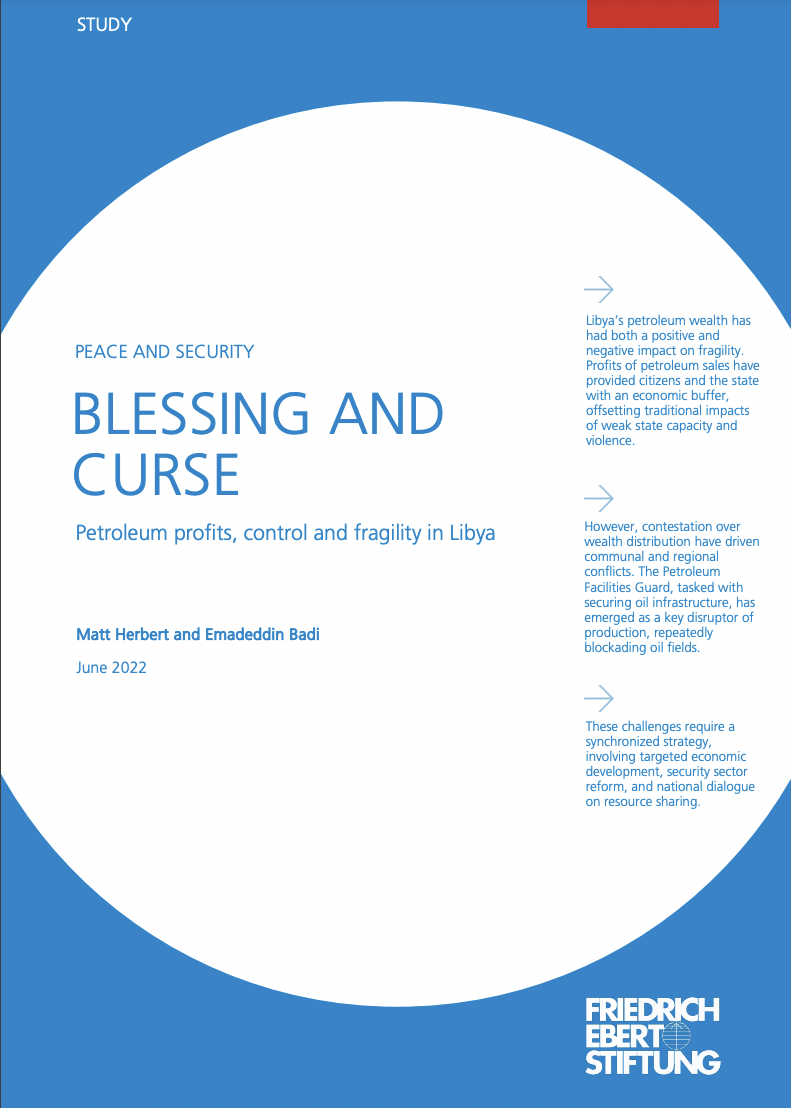I'm delighted to announce the publication of my new report, 'Blessing And Curse: Petroleum profits, control and fragility in Libya.’ Written with Emad Badi for the Friedrich Ebert Stiftung, the report looks at how Libya’s petroleum wealth has had both a positive and negative impact on the country's fragility.
The benefits of oil are well known, with profits from petroleum sales providing citizens and the state with an economic buffer, offsetting the impacts of weak state capacity, chaotic politics and violence.
However, the central economic importance of petroleum products has also led to negative impacts on fragility. This is not due to one single dimension, but rather a confluence of separate, though often reinforcing, dynamics. Perceptions of unfair resource allocation have led communities in oil and gas producing areas and regions to disrupt production, in order to press for jobs and a more equitable sharing of profits. Conflict entrepreneurs have transformed the control of oil and gas infrastructure into an economic weapon. The official entity tasked with protecting infrastructure and ensuring production, the Petroleum Facilities Guard, is a key part of the problem, with field units repeatedly halting production and transport of oil and gas.
The report delves into these dynamics in greater depth and sketches out a synchronized strategy to address them, involving targeted economic development, security sector reform, and national dialogue on resource sharing.
The report ican be found here: http://library.fes.de/pdf-files/bueros/libyen/19331.pdf

